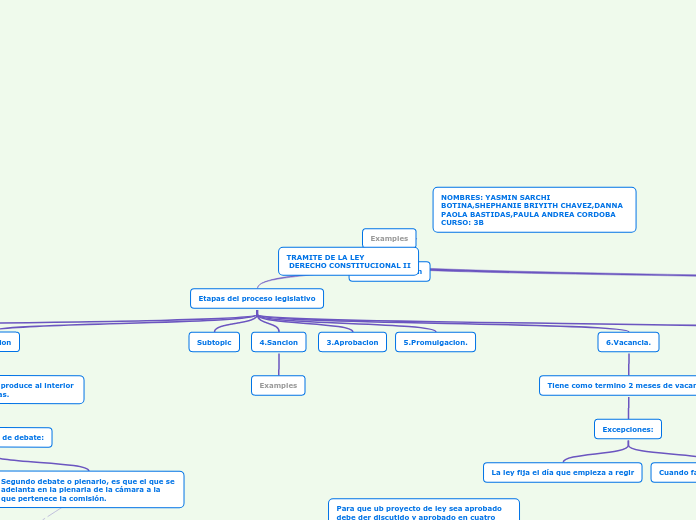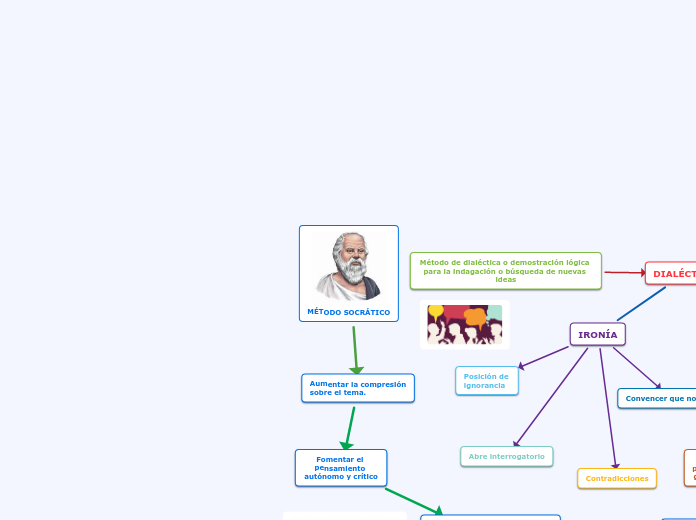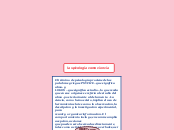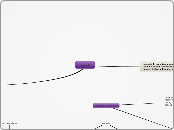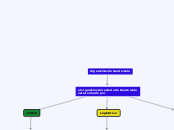Structure:
Subject + was/ were + Verb-ING
e.g. You were studying when she called.
Type in your own examples or you can also choose from the examples below.
Form of verb 'to be':
I was beingYou were beingHe/She/It was beingWe were beingYou were beingThey were being
Form of verb 'to have':
I was havingYou were havingHe/She/It was havingWe were havingYou were havingThey were having
Para que ub proyecto de ley sea aprobado debe der discutido y aprobado en cuatro debates, si es acto legislativo necesita ser discutido y aprobado en ocho debates.
Future tenses
There are four Future tenses:
- Future Simple ('with Will' and 'with Going to')
- Future Continuous
- Future Perfect Simple
- Future Perfect Continuous
Future Perfect Continuous
Future Perfect Simple is used for:
- an action that will continue up until a point in the future
- an action that finishes just before another time or action in the future
Some adverbs used with Past Perfect Continuous for future actions:
- for
- since
- next week
- next month
- next year
Structure:
Will + Subject + Have Been + Verb-ING
e.g. How long will they be working on that project next week?
Type in your own examples or you can also choose from the examples below.
Form of word "to be":
Will I have been being?Will you have been being?Will he/she/it have been being?Will we have been being?Will you have been being?Will they have been being?
Form of word "to have":
Will I have been having?Will you have been having?Will he/she/it have been having?Will we have been having?Will you have been having?Will they have been having?
Structure:
Subject + Won’t Have Been + Verb-ING
e.g. They won’t have been working on that project for two years next week.
Type in your own examples or you can also choose from the examples below.
Form of word "to be":
I will not have been beingYou will not have been beingHe/She/It will not have been beingWe will not have been beingYou will not have been beingThey will not have been being
Form of word "to have":
I will not have been havingYou will not have been havingHe/She/It will not have been havingWe will not have been havingYou will not have been havingThey will not have been having
Structure:
Subject + Will Have Been + Verb-ING
e.g. They will have been working on that project for two years next week.
Type in your own examples or you can also choose from the examples below.
Form of verb 'to be':
I will have been beingYou will have been beingHe/She/It will have been beingWe will have been beingYou will have been beingThey will have been being
Form of verb 'to have':
I will have been havingYou will have been havingHe/She/It will have been havingWe will have been havingYou will have been havingThey will have been having
Future Perfect Simple
Future Perfect Simple is used for:
- an action that will be finished by a particular time in the future
- an action that starts before and continues up to another action or time in the future
- an action that will finish before a certain time in the future, but it is not known exactly when
Adverb used with Future Continuous:
- tomorrow (e.g. tomorrow by 7)
Structure:
Will + Subject + Have + Past Participle?
e.g. Will you have met your colleague by this time tomorrow?
Structure:
Subject + Won’t Have + Past Participle
e.g. I won’t have met my friend form United States by this time tomorrow.
Type in your own examples or you can also choose from the examples below.
Form of word "to be":
I will not have beenYou will not have beenHe/She/It will not have beenWe will not have beenYou will not have beenThey will not have been
Form of word "to have":
I will not have hadYou will not have hadHe will not have hadWe will not have hadYou will not have hadThey will not have had
Structure:
Subject + Will Have + Past Participle
e.g. I will have met my friend form United States by this time tomorrow.
Type in your own examples or you can also choose from the examples below.
Form of verb 'to be':
I will have beenYou will have beenHe/She/It will have beenWe will have beenYou will have beenThey will have been
Form of verb 'to have':
I will have hadYou will have hadHe/She/It will have hadWe will have hadYou will have hadThey will have had
Future Continuous
Future Continuous is used:
- for an action that is likely to happen in the future and continue for an expected length of time
- for an action that will be in progress at some point in the future
- for action verbs (e.g. running)
- for predictions about future events
Adverb used with Future Continuous:
- tomorrow (e.g. tomorrow at 5 o'clock)
Structure:
Will + Subject + Be +Verb-ING?
e.g. Will you be having fun at the party?
Type in your own examples or you can also choose from the examples below.
Form of word "to be":
Will I be being?Will you be being?Will he/she/it be being?Will we be being?Will you be being?Will they be being?
Form of word "to have":
Will I be having?Will you be having?Will he/she/it be having?Will we be having?Will you be having?Will they be having?
Structure:
Subject + Won’t Be + Verb-ING
e.g. He won’t be having fun at the party.
Type in your own examples or you can also choose from the examples below.
Form of word "to be":
I will not be beingYou will not be beingHe/She/It will not be beingWe will not be beingYou will not be beingThey will not be being
Form of word "to have":
I will not be havingYou will not be havingHe/She/It will not be havingWe will not be havingYou will not be havingThey will not be having
Affirmative form
Structure:
Subject + Will Be + Verb-ING
e.g. You will be having fun at the party.
Type in your own examples or you can also choose from the examples below.
Form of verb 'to be':
I will be beingYou will be beingHe/She/It will be beingWe will be beingYou will be beingThey will be being
Form of verb 'to have':
I will be havingYou will be havingHe/She/It will be havingWe will be havingYou will be havingThey will be having
Future Simple
Future Simple is used:
- to predict an event in the future
- to invite
- to give orders
- to express willingness
- for actions that have not yet occurred but that will occur at a future date
"Going to"
'Going to' Future is used:
- to talk about our future intentions and plans
- for commands
Some adverbs used with 'Going to' Future:
- later
- tonight
- tomorrow
- next week
- next month
- next year
Interrogative form
Structure:
BE + Subject + going to + Infinitive Form of Verb?
e.g. Are you going to read the whole book over the weekend?
Type in your own examples or you can also choose from the examples below.
Form of word "to be":
Am I going to be?Are you going to be?Is he/she/it going to be?Are we going to beAre you going to be?Are they going to be?
Form of word "to have":
Am I going to have?Are you going to have?Is he/she/it going to have?Are we going to haveAre you going to have?Are they going to have?
"Will"
Future Simple with 'will'' is used:
- to predict the future
- for something with absolute certainty
- when we're talking about a decision at the moment of speaking
- promises, requests, refusals, offers
- future facts
Some adverbs used with Future Simple:
- tomorrow
- next week
- next month
- next year
Ejemplo:
Un proyecto radicado en la comisión cuarta del Senado:
Type in your own examples or you can also choose from the examples below.
Form of verb 'to be':
I am going to beYou are going to beHe/She/It is going to beWe are going to beYou are going to beThey are going to be
Form of verb 'to have':
I am going to haveYou are going to haveHe/She/It is going to beWe are going to beYou are going to beThey are going to be
Primer debate, en la comisión. Si es aprobado por la mayoría pasa a la plenaria del senado.
Segundo debate; se realiza en la plenaria del senado, si es aprobado pasa a la comisión cuarta de la cámara.
Tercer debate: Se adelanta en la comisión 4 de la cámara. Si es aprobado pasa a la plenaria de la Cámara.
Cuarto debate: se adelanta en la plenaria de la Cámara.
Si se tramita un proyecto de Acto Legislativo, requiere ocho debates: En el ejemplo anterior, si es aprobado en el cuarto debate en la plenaria de la Cámara vuelve a la comisión cuarta del Senado a quinto debate y así sucesivamente.
Type in your own examples or you can also choose from the examples below.
Form of word "to be":
I am not going to beYou are not going to beHe/She/It is not going to beWe are not going to beYou are not going to beThey are not going to be
Form of word "to have":
I am not going to haveYou are not going to haveHe/She/It is not going to haveWe are not going to haveYou are not going to haveThey are not going to have
NOMBRES: YASMIN SARCHI BOTINA,SHEPHANIE BRIYITH CHAVEZ,DANNA PAOLA BASTIDAS,PAULA ANDREA CORDOBA
CURSO: 3B
Type in your own examples or you can also choose from the examples below.
Form of verb 'to be':
I had been beingYou had been beingHe/She/It had been beingWe had been beingYou had been beingThey had been being
Form of verb 'to have':
I had been havingYou had been havingHe/She/It had been havingWe had been havingYou had been havingThey had been having
TRAMITE DE LA LEY
DERECHO CONSTITUCIONAL II
Tenses demonstrate the time of actions centered around the subject of the sentence. These actions are called verbs and change according to tenses.
Past tenses
There are four Past tenses:
- Past Simple
- Past Continuous
- Past Perfect Simple
- Past Perfect Continuous
Past Continuous
Past Continuous is used for:
- an action that happened before another action in the past
- an action that started in the past and continued up to a given time in the past
- an action done several times up to a point in the past and continued to do after that point
- an action that happened in the past but is important at the time of reporting
Some adverbs used with Past Continuous:
- always, only, never, ever, still, just
Interogative form
Structure:
Was/ were + Verb-ING?
e.g. Were you studying when she called?
Negative form
Structure:
Subject + wasn’t (was not)/ weren’t (were not) + Verb-ING
e.g. You were not studying when she called.
Type in your own examples or you can also choose from the examples below.
Form of word "to be":
I was not beingYou were not beingHe/She/It was not beingWe were not beingYou were not beingThey were not being
Form of word "to have":
I was not havingYou were not havingHe/She/It was not havingWe were not havingYou were not havingThey were not having
Etapas del proceso legislativo
Past Perfect Simple is used for:
- an action that began in the past and is still going on at the moment of speaking
- an action that continued before and after another action
- a change of mind
- an action happening repeatedly in the past
The Past Perfect tense is not normally used alone. It is used to denote the earlier of two past actions. We use Past Simple for the latter action.
Some adverbs used with Past Perfect Simple:
- already, before, ever, never
- once, twice, yet
- just, up to then
- for, since
7.Comienzo de obligatoriedad.
Past Perfect Continuous is used:
- for an action that started in the past and continued up to another point in the past
- to show cause and effect
Some adverbs used with Past Perfect Continuous:
- since (e.g. since yesterday)
- for (e.g. for 10 years, for 6 months)
Inicia su vigencia
- Termina el periodo de vacancia
- En la fecha fijada
- Concedida al gobierno
Los preceptos de la ley son obligatorios y no se puede manifestar su desconocimiento.
6.Vacancia.
Structure:
Subject + hadn’t been/had not been + Verb-ING
e.g. I was tired because I hadn't been sleeping.
Tiene como termino 2 meses de vacancia
Type in your own examples or you can also choose from the examples below.
Form of word "to be":
I had not been beingYou had not been beingHe/She/It had not been beingWe had not been beingYou had not been beingThey had not been being
Form of word "to have":
I had not been havingYou had not been havingHe/She/It had not been havingWe had not been havingYou had not been havingThey had not been having
Excepciones:
Cuando faculta al gobierno
La ley fija el día que empieza a regir
5.Promulgacion.
Structure:
Subject + had been + Verb-ING
e.g. They had been talking for over an hour before I arrived.
3.Aprobacion
Structure:
Had + Subject + been Verb-ING?
e.g. How long had they been living in London before moving here?
4.Sancion
Structure:
Had + Subject + Past Participle?
e.g. Had they met Sarah before the party?
Examples
Type in your own examples or you can also choose from the examples below.
Form of word "to be":
Had I been?Had you been?Had he/she/it been?Had we been?Had you been?Had they been?
Form of word "to have":
Had I had?Had you had?Had he/she/it had?Had we had?Had you had?Had they had?
Subtopic
2.Discusion
Structure:
Subject + hadn’t (had not) + Past Participle
e.g. They hadn’t met Julia before the party.
Es la deliberación que se produce al interior de las cámaras legislativas.
Type in your own examples or you can also choose from the examples below.
Form of word "to be":
I had not beenYou had not beenHe/She/It had not beenWe had not beenYou had not beenThey had not been
Form of word "to have":
I had not hadYou had not hadHe/She/It had not hadWe had not hadYou had not hadThey had not had
Existen dos tipos de debate:
Type in your own examples or you can also choose from the examples below.
Form of verb 'to be':
I will beYou will beHe/She/It will beWe will beYou will beThey will be
Form of verb 'to have':
I will haveYou will haveHe/She/it will haveWe will haveYou will haveThey will have
Segundo debate o plenario, es que el que se adelanta en la plenaria de la cámara a la que pertenece la comisión.
Type in your own examples or you can also choose from the examples below.
Form of word "to be":
Will I be?Will you be?Will he/she/it be?Will we be?Will you be?Will they be?
Form of word "to have":
Will I have?Will you have?Will he/she/it have?Will we have?Will you have?Will they have?
Primer debate, el que se adelanta en la respectiva comisión de la cámara donde fue radicado el proyecto.
Type in your own examples or you can also choose from the examples below.
Form of word "to be":
I will not beYou will not beHe/She/It will not beWe will not beYou will not beThey will not be
Form of word "to have":
I will not haveYou will not haveHe/She/It will not haveWe will not haveYou will not haveThey will not have
1.iniciativa
Structure:
Subject + had + Past Participle
e.g. They had already met Julia before the party.
La realiza el Presidente de la Republica firmando el Proyecto convirtiéndolo en Ley de La Republica
Type in your own examples or you can also choose from the examples below.
Form of verb 'to be':
I had writtenYou had writtenHe/She/It had writtenWe had writtenYou had writtenThey had written
Form of verb 'to have':
I have hadYou have hadHe/She/It has hadWe have hadYou have hadThey have had
